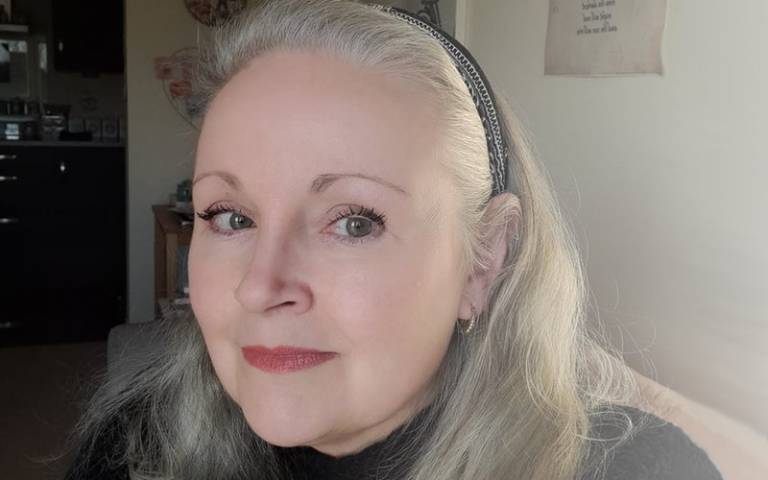Claire's story
Claire was referred to UCLH's CAR T-cell therapy trial after a difficult experience with a bone marrow transplant. She says it saved her life.

1 February 2023
Initially, Claire didn’t realise back pain could be a symptom of leukaemia. But the pain got worse, and she was constantly feeling tired.
In June 2015, after hospital tests revealed compression fractures in her spine, Claire's leukaemia was diagnosed. She began chemotherapy within days. Following this, she also underwent a bone marrow transplant. It was a difficult time.
"It was horrible, I'll be honest," she says. "It was the most horrible thing I’ve ever had to do."
Although unpleasant, the treatment initially worked, and Claire was in remission. However, in 2019, the back pain returned. She went for blood tests and an MRI scan: "I came out and there was a message from my consultant, saying to phone her straight away. I did, and she just said 'I'm so sorry, you've got to go in tonight'. So I got home from hospital, I packed a case, and they said 'you've relapsed, it's back' – which was not very nice, but it happens, unfortunately."
Claire started another course of chemotherapy. But her consultant had heard about the CAR T-cell therapy trial running at UCLH.
Tests for the trial were extensive. As Claire says, "I went up to London and had 23 tubes of blood taken, a biopsy and all sorts", but her results came back and she was able to begin therapy.
She explains the details: "I had six days of what they call conditioning chemo which killed everything off ready for the [CAR T-] cells. Then the first infusion is 100 million cells, which is just a little bag. Then they monitor you really closely to make sure you're not having bad effects or a bad reaction, and after nine days they gave me the other 400 million cells, and then two weeks after that, they said I could go home.
"I got discharged on the Thursday, and had to go back on the Monday. And I think there was 'NED', which means 'no evidence of disease'." Claire returned to London once a month to be monitored, but she was, and still is, in remission
For Claire, CAR T-cell therapy was much easier than her bone marrow transplant.
"I met a lady in the waiting room when I was going for a check-up, and she was being admitted that day. I said 'don't worry about it, it sounds horrible, but in my experience, it really wasn't'.
"It's difficult, some people will have side effects. I know someone else who had CAR-T who went into intensive care for a few days. But I think me being there cheered this lady up because, apart from having no hair, I looked fairly normal I suppose! I said 'no, I've had it, I was in for five weeks and I was back home again'."
Claire was happy to share her story to reassure future patients: "UCLH and the CAR-T trial saved my life. In 2019, I could barely walk from the pain. It's nice to be able to give something back."
Support us
If you are interested in supporting the work we do, you can donate to support cancer research at UCL, or contact advancement@ucl.ac.uk to discuss making a donation or leaving a gift for cancer research in your will.
 Close
Close

